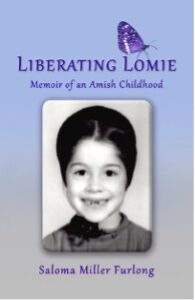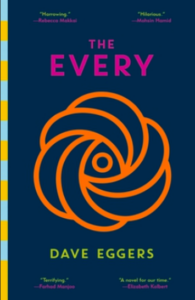“I’ve never had a crush, I’ve never wanted anyone in my bed. I’ve never looked at anyone and wondered what they looked like naked. I’ve never wanted to… to see anyone or touch anyone.”
We all know the classic fairy tale premise: A prince rescues a princess, they get married, they live happily ever after. Now, of course, we’re living in modern times. Princes can marry princes; princesses can marry princesses and so on – as long as they stick to the premise. Rescue, marry, live happily ever after. But what if a prince doesn’t wish to be rescued?
Aro-ace Prince Gerald teams up with a no-nonsense dragon to fight against the Thousand Kingdoms’ marriage traditions in ROYAL RESCUE, a fantasy adventure with magic, rebellion, and queer happy endings! https://t.co/slNMermv3P pic.twitter.com/Wt2iSJHS8y
— Alex Logan (@AAlexLogan) June 12, 2021







 In 2011, Saloma Miller Furlong’s Why I Left the Amish: A Memoir appeared during the memoir boom that gave agency to invisible, marginalized, or misrepresented groups. Why I Left the Amish was one of the first memoirs written by a former Amish woman that provided unfettered perspectives on the Amish. While many Amish groups today lead a simple life much like many rural Americans in agricultural communities did in the 19th to early 20th centuries, Amish culture is anything but simple as Furlong’s newest memoir shows.
In 2011, Saloma Miller Furlong’s Why I Left the Amish: A Memoir appeared during the memoir boom that gave agency to invisible, marginalized, or misrepresented groups. Why I Left the Amish was one of the first memoirs written by a former Amish woman that provided unfettered perspectives on the Amish. While many Amish groups today lead a simple life much like many rural Americans in agricultural communities did in the 19th to early 20th centuries, Amish culture is anything but simple as Furlong’s newest memoir shows.
 Have you ever felt like not watching movies for a while just because you saw one that’s so damn good you knew watching anything else after it would just disappoint you? This is the spell that Mulholland Drive has cast on me.
Have you ever felt like not watching movies for a while just because you saw one that’s so damn good you knew watching anything else after it would just disappoint you? This is the spell that Mulholland Drive has cast on me. Once upon a time, there was a young woman named Cinderella (Camila Cabello). In the 2021 film, she loves to design dresses and wants to make a business out of it. When the prince (Nicholas Galitzine) announces a ball, her stepmother Vivian (Idina Menzel), wanting to protect her from the patriarchal world outside, destroys Cinderella’s dress to keep her from potentially marrying a man she’d just met. The prince, however, is in love with his best friend (Jenet Le Lacheur) but can’t really admit it – not even to himself. Also, he’s not qualified to rule the kingdom. The patriarchy, however, wants him to become king and will never agree to his smart sister (Tallulah Greive) becoming queen.
Once upon a time, there was a young woman named Cinderella (Camila Cabello). In the 2021 film, she loves to design dresses and wants to make a business out of it. When the prince (Nicholas Galitzine) announces a ball, her stepmother Vivian (Idina Menzel), wanting to protect her from the patriarchal world outside, destroys Cinderella’s dress to keep her from potentially marrying a man she’d just met. The prince, however, is in love with his best friend (Jenet Le Lacheur) but can’t really admit it – not even to himself. Also, he’s not qualified to rule the kingdom. The patriarchy, however, wants him to become king and will never agree to his smart sister (Tallulah Greive) becoming queen.